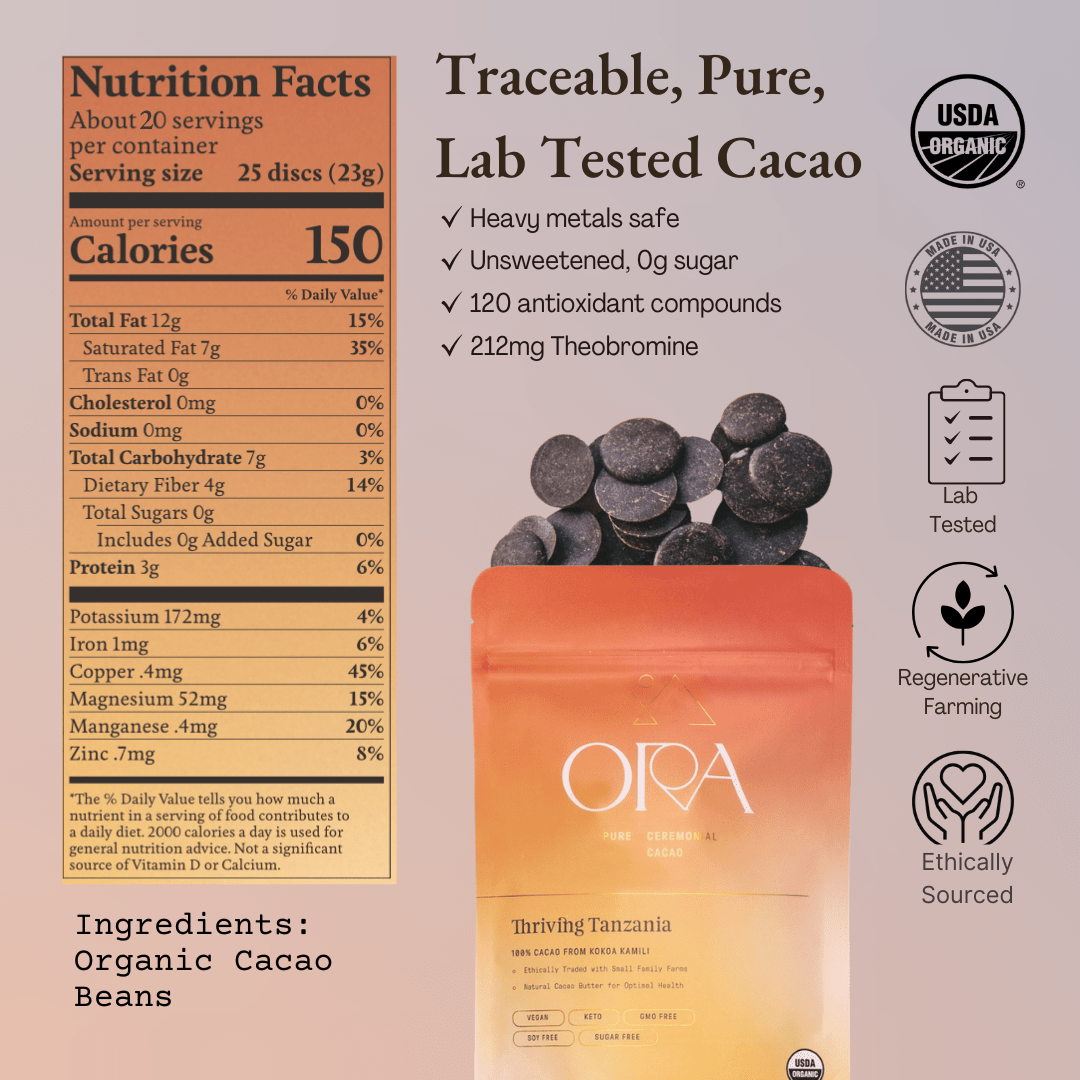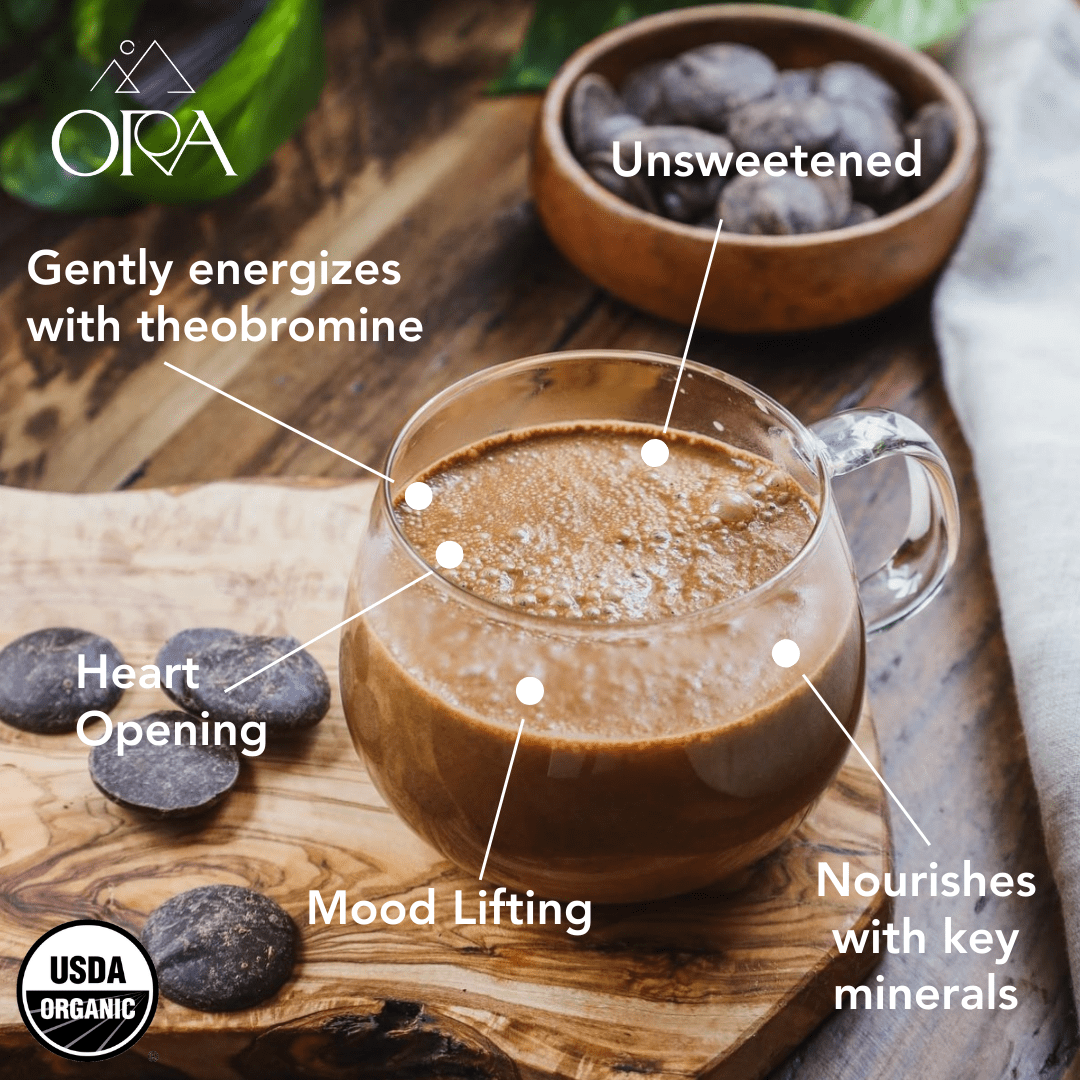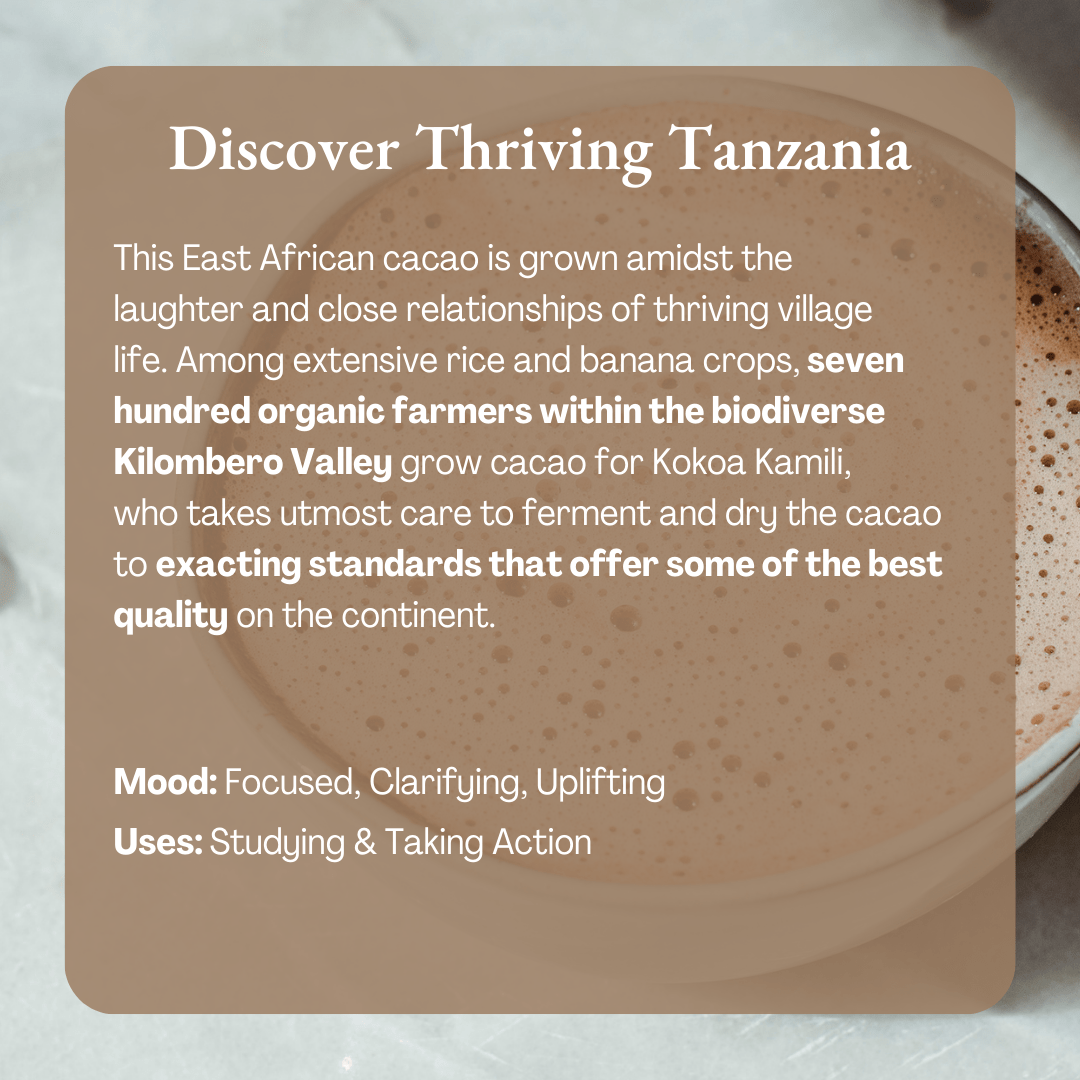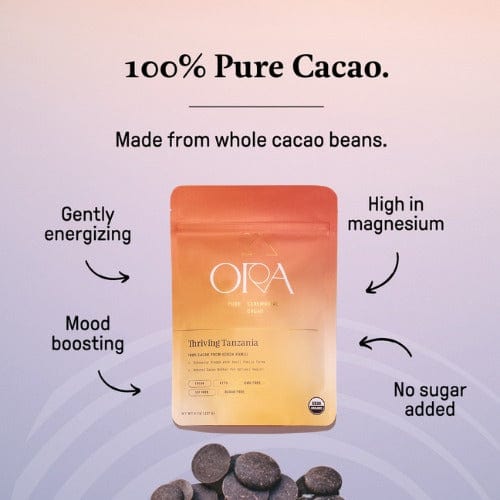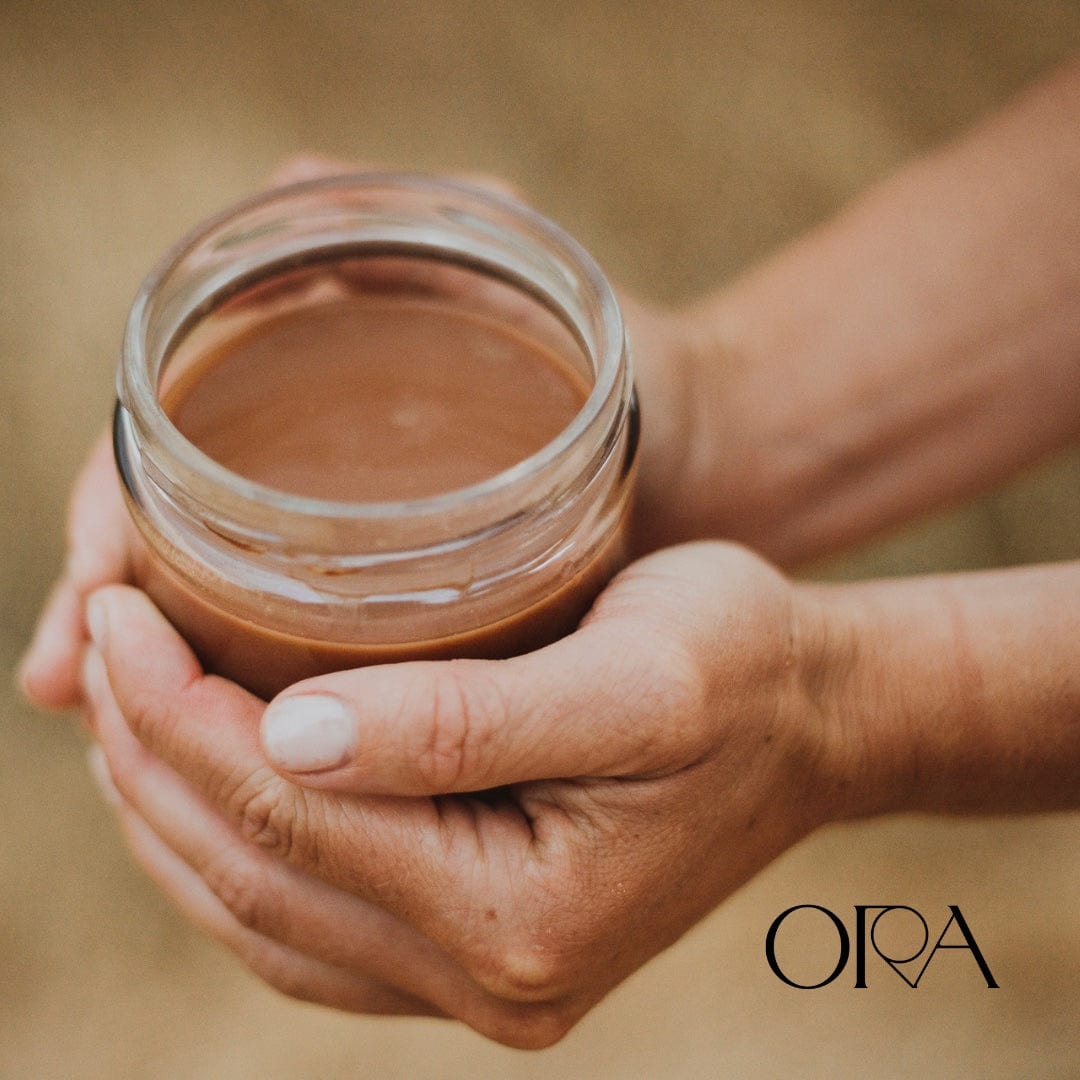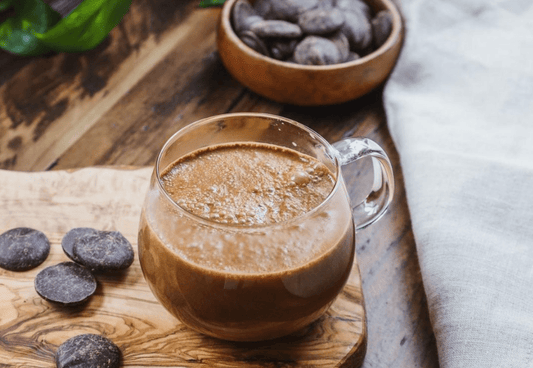Cacao pur 100 % cérémoniel
Tanzanie florissante
Impossible de charger la disponibilité du service de retrait
Organic & Regenerative
Lab-Tested
Ce premier cacao cérémoniel d'Afrique est cultivé au milieu des rires et des relations étroites d'une vie villageoise florissante. Au milieu de vastes cultures de riz et de bananes, sept cents agriculteurs certifiés biologiques de la vallée riche en biodiversité de K...
Ce premier cacao cérémoniel d'Afrique est cultivé au milieu des rires et des relations étroites d'une vie villageoise florissante. Au milieu de vastes cultures de riz et de bananes, sept cents agriculteurs certifiés biologiques de la vallée riche en biodiversité de Kilombero cultivent du cacao pour Kokoa Kamili, qui prend le plus grand soin à fermenter et à sécher le cacao selon des normes rigoureuses qui offrent la meilleure qualité sur le continent. De nos agriculteurs en Tanzanie, "Asante" - c'est le swahili pour merci !
Ce cacao cérémoniel provient de 700 petites fermes familiales biologiques (0,5 à 2 acres) de la vallée de Kilombero, qui borde le parc national des monts Udzungwa, un endroit connu pour sa biodiversité. Nos partenaires ici sont Kokoa Kamili (Quality Cacao en swahili), et leur modèle est inspiré de nos partenaires au Belize. Au cours de ses trois premières années, les agriculteurs de Kokoa Kamili ont reçu les prix les plus élevés pour le cacao en Tanzanie. Le cacao de cette région est exceptionnel en tant que chocolat noir pur car il a une teneur en beurre de cacao plus élevée que la moyenne, ce qui lui donne une douceur soyeuse.
En savoir plus sur la culture du cacao et voir des photos de notre voyage en Tanzanie ici.
Why You'll Love This
Why You'll Love This
UPLIFT - Neuromodulators and neuro reuptake-inhibitors in cacao support a stable and elevated mood that lasts.
ENERGIZE - Theobromine gently energizes and helps with coffee reduction or replacement.
NOURISH - High mineral density in cacao replenishes deficiencies so you can be optimally healthy
INSPIRE - Cacao ceremony begins with mindfulness, gratitude, and intention. Practice at home to deepen your relationship.
Certifications & Lab Test Results
Certifications & Lab Test Results
1. Organic & Regenerative - all of our cacao is certified organic by Organic Certifiers. We only source from farms practicing regenerative agroforestry.
2. Heavy Metals - we lab test all of our cacao. You can see our test results here.
3. Caffeine & Theobromine - our pure cacaos contain 36mg of caffeine and 212mg of Theobromine. Ceremonial cacao is a great coffee replacement because it offers a grounded energy boost without the jitters and crash (the caffeine is substantially down-regulated by other compounds in cacao).
4. Vegan, Keto, Kosher - Kosher certified by Earth Kosher.
5. Unsweetened - no sugar or sweeteners of any sort.
Ingredients + Nutrition Facts
Ingredients + Nutrition Facts
Ingredients: Organic Cacao Beans from Tanzania. That's all! No sweeteners.

Cacao Sourcing Standard
Cacao Sourcing Standard
Ceremonial Cacao refers to a premium grade, pure cacao that is ethically sourced from small family farms practicing regenerative agroforestry. Ceremonial cacao is made from a single ingredient, whole cacao beans, with nothing added or removed. You drinking cacao with intention and gratitude is part of it too!
100% Cacao from Kokoa Kamili in Kilombero Valley Read more
How To Prepare Cacao
How To Prepare Cacao
Step 1 - Combine between 20 cacao discs (0.8oz) to 25 cacao discs (1.0oz) with a touch of sweetener (or drink pure)
Step 2 - Add 3/4 cup (6oz) hot water, tea, or mylk ~ 180°F
Step 3 - Use a blender or electric frother to mix for 10 seconds. This creates much better texture than just stirring.
SERVING SIZE
SERVING SIZE
For daily use, we recommend about 1oz of cacao or 20-25 discs per serving. It is safe to have two servings per day.
If you tend to be more sensitive (or if you're on SSRIs), start small with 5-10 discs first and see how you feel before increasing to 25 discs.
It is possible to enjoy a few discs of cacao at a time by letting them melt on your tongue instead of blending them into a drink.
To receive the health benefits, minerals, energizing effect, and mood lift, we do recommend the standard ~25 discs serving size.

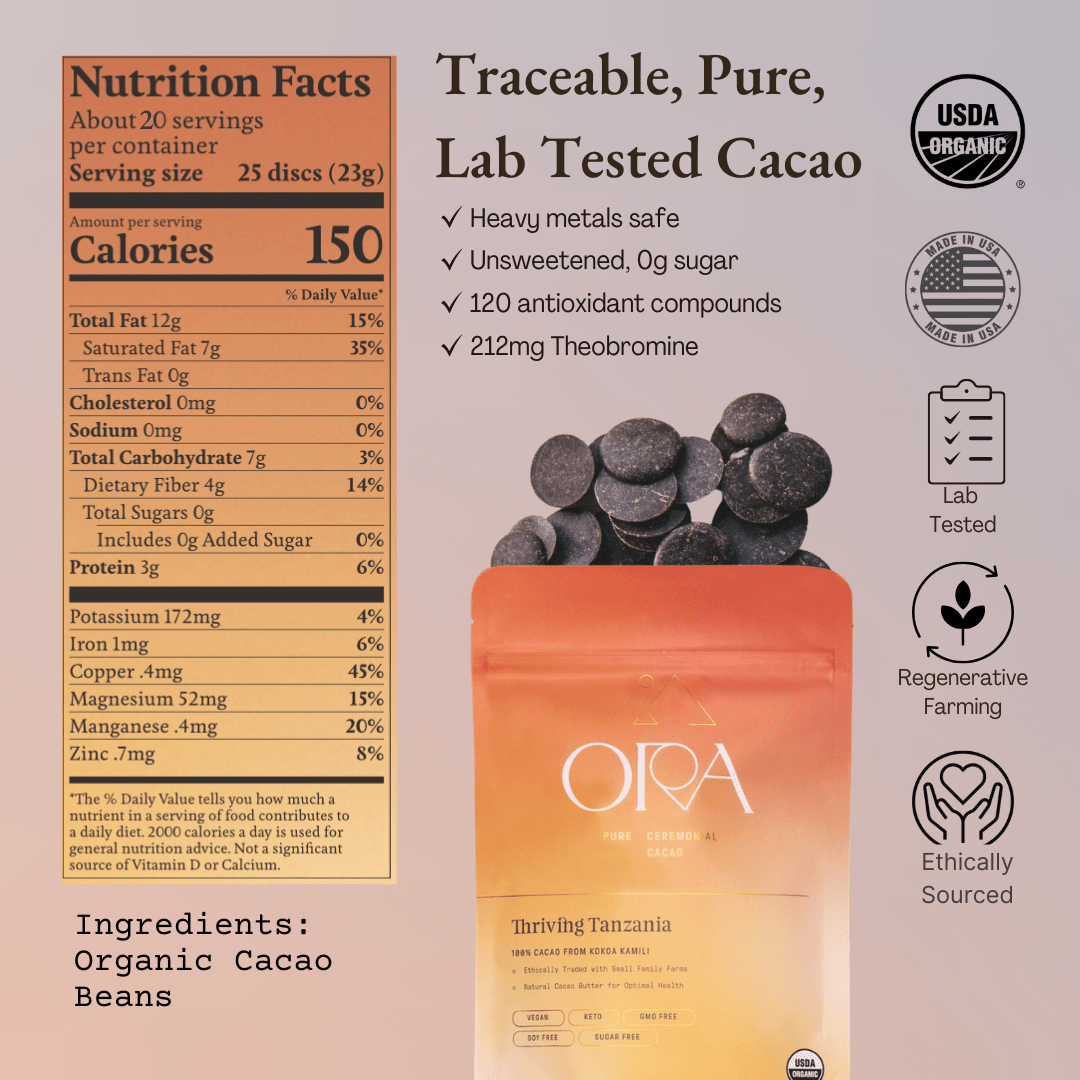
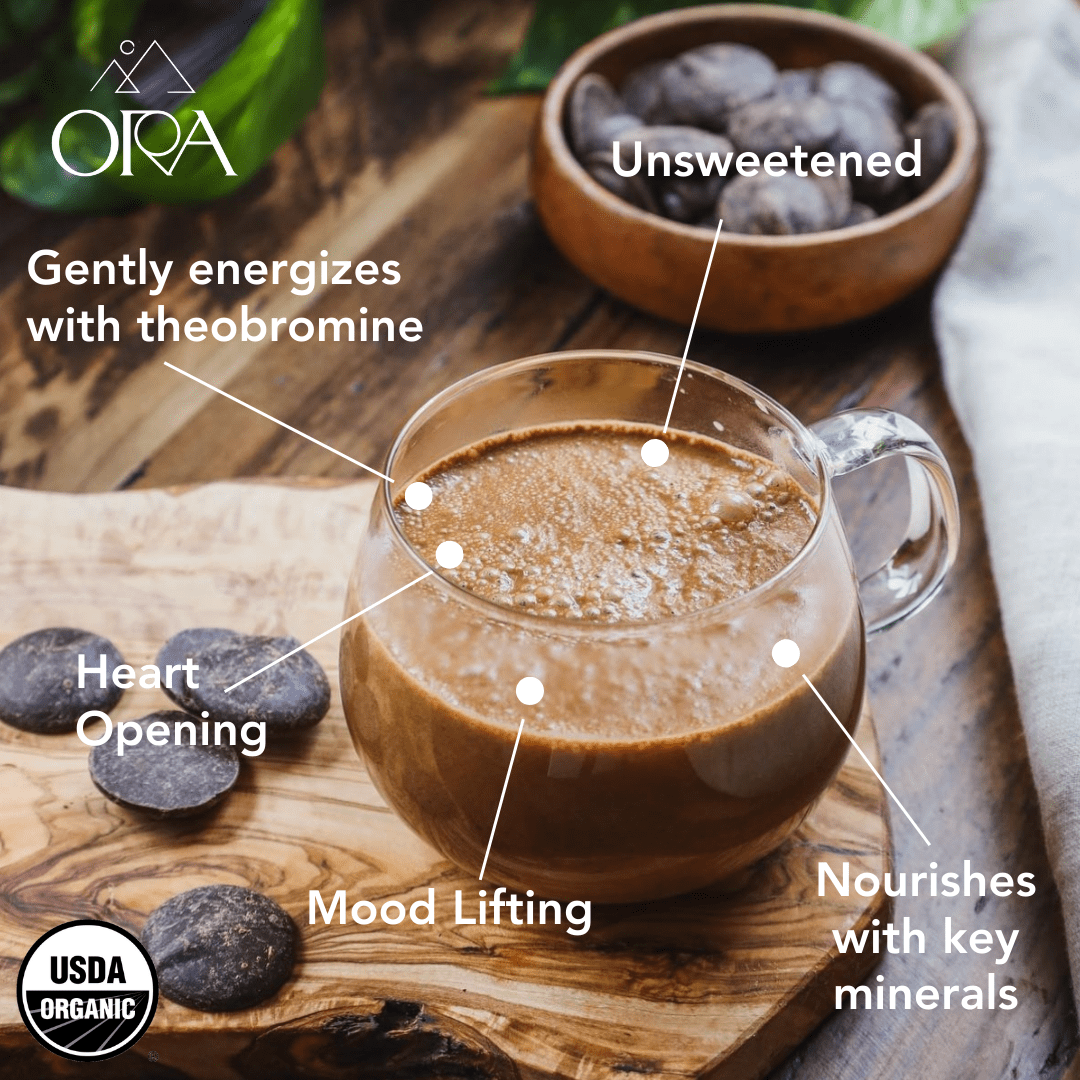
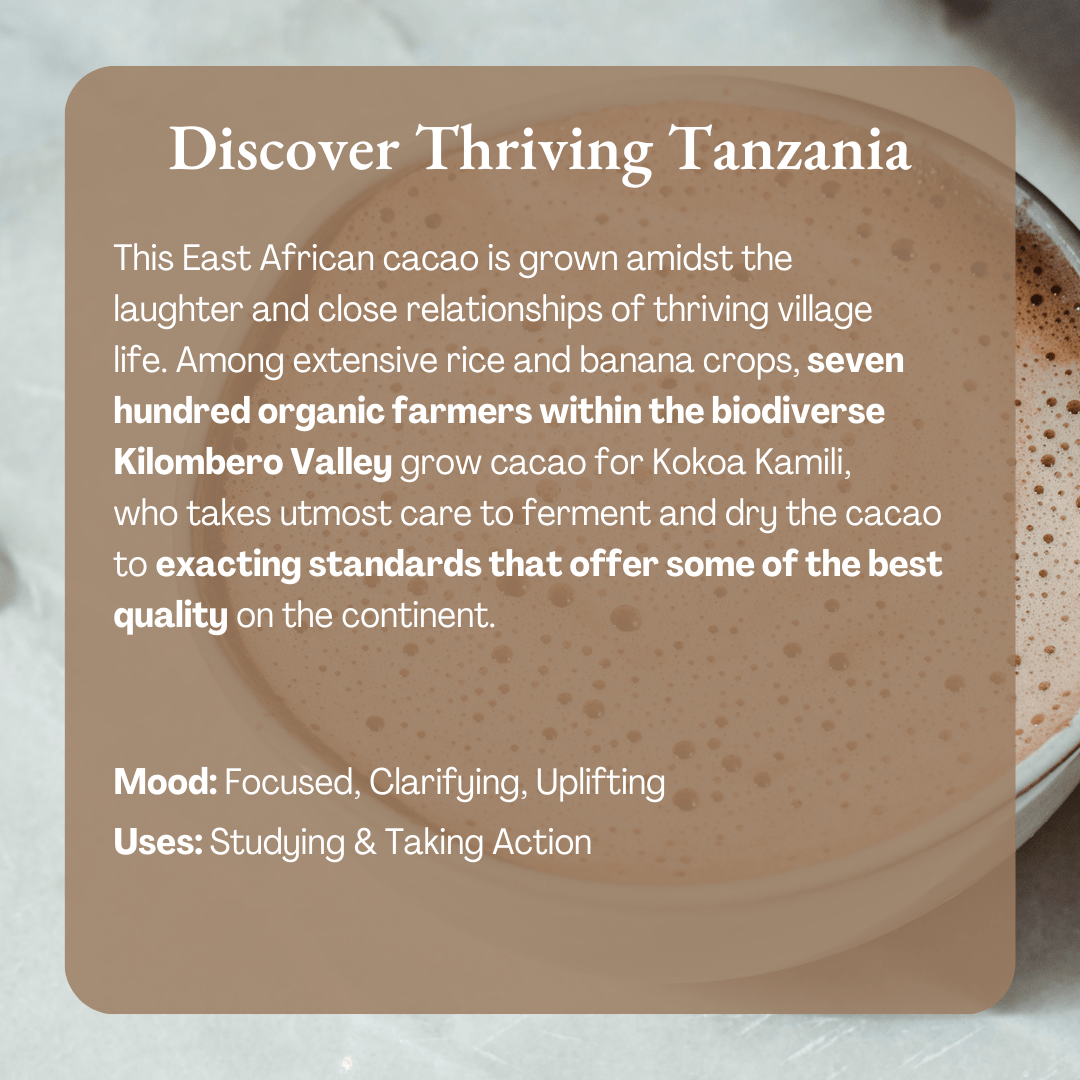
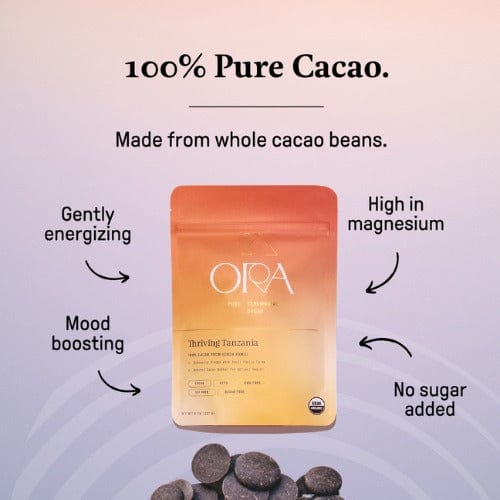
Ethical Trade Regenerative Agroforestry USDA Organic Unsweetened Third Party Lab Tested Metals Safe High in Flavonoids Vegan & Keto Kosher GMO-Free & Soy-Free
Ethical Trade Regenerative Agroforestry USDA Organic Unsweetened Third Party Lab Tested Metals Safe High in Flavonoids Vegan & Keto Kosher GMO-Free & Soy-Free
3 Reasons Why 1 Million Cups Of Ora Cacao Are Sipped Each Year
-
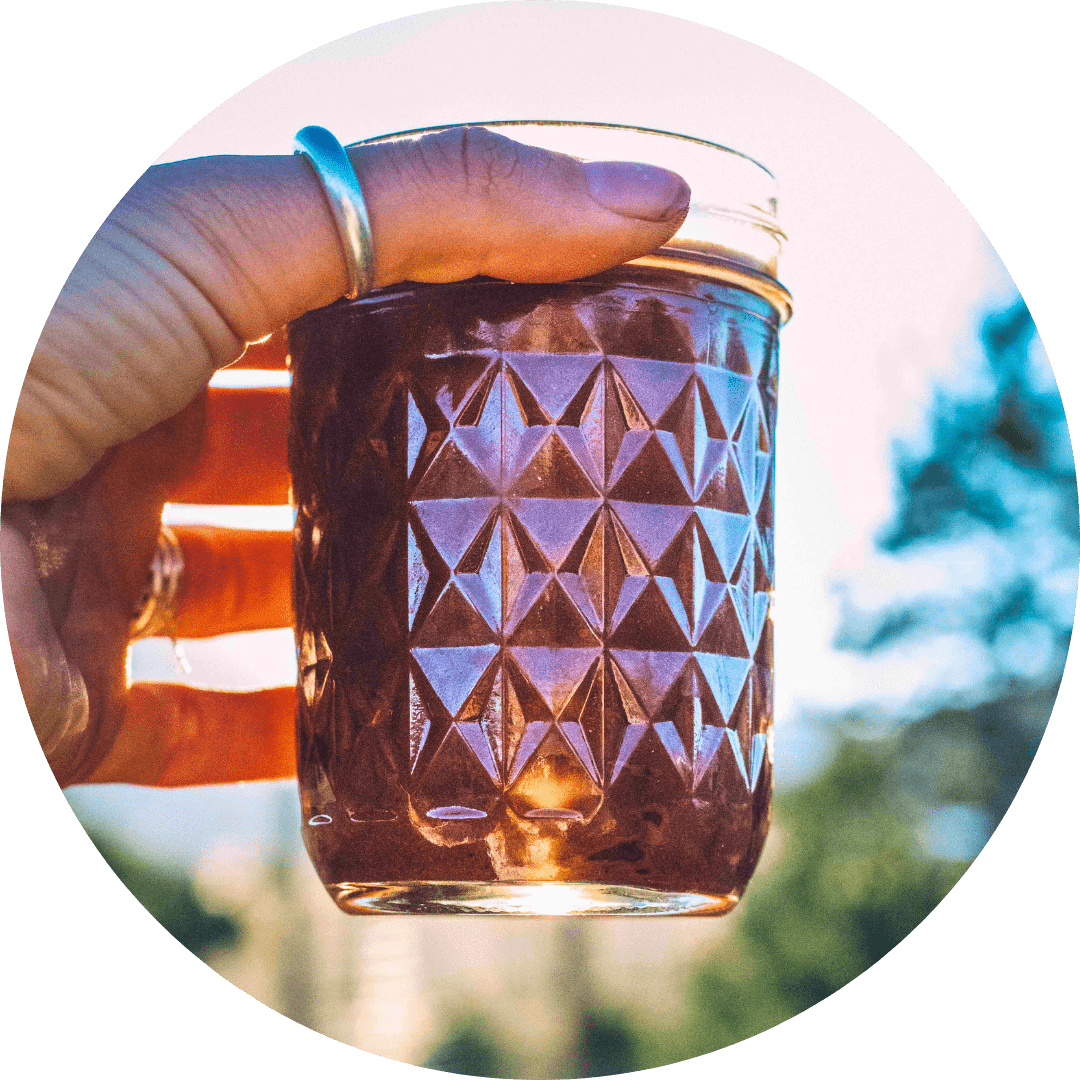
1) Gently Energizing
Cacao energizes with theobromine instead of caffeine. Theobromine relaxes your blood vessels, increases circulation, supports heart health, and promotes nutrient absorption. Enjoy steady, uplifting energy without the jitters or crash of coffee.
-
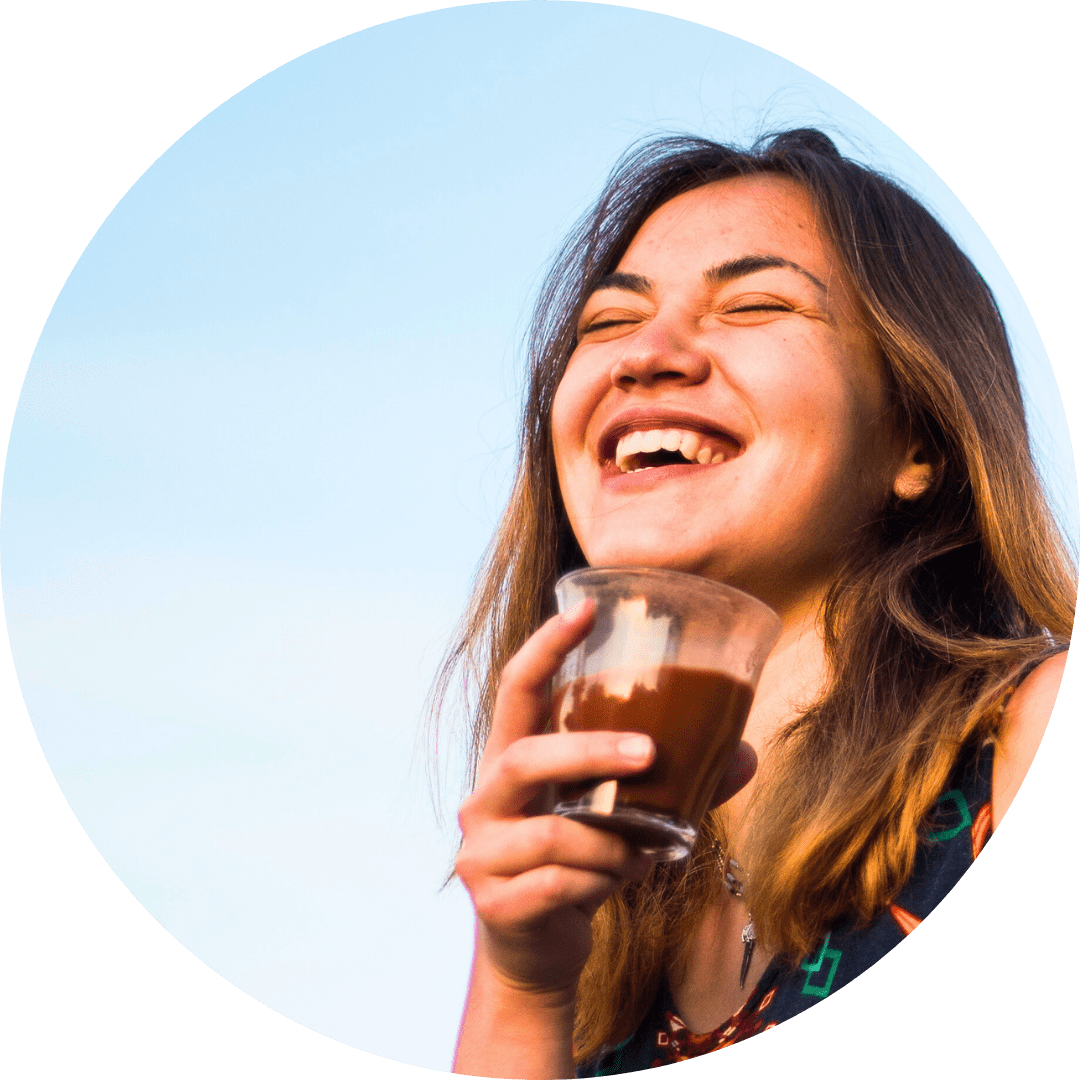
2) Mood Boosting
Cacao's neuromodulators and reuptake inhibitors help boost and stabilize your mood. Drinking ceremonial cacao can make you feel blissful, connected, inspired, grounded,and may even release stuck emotions or energy, giving a sense of time slowing down.
-
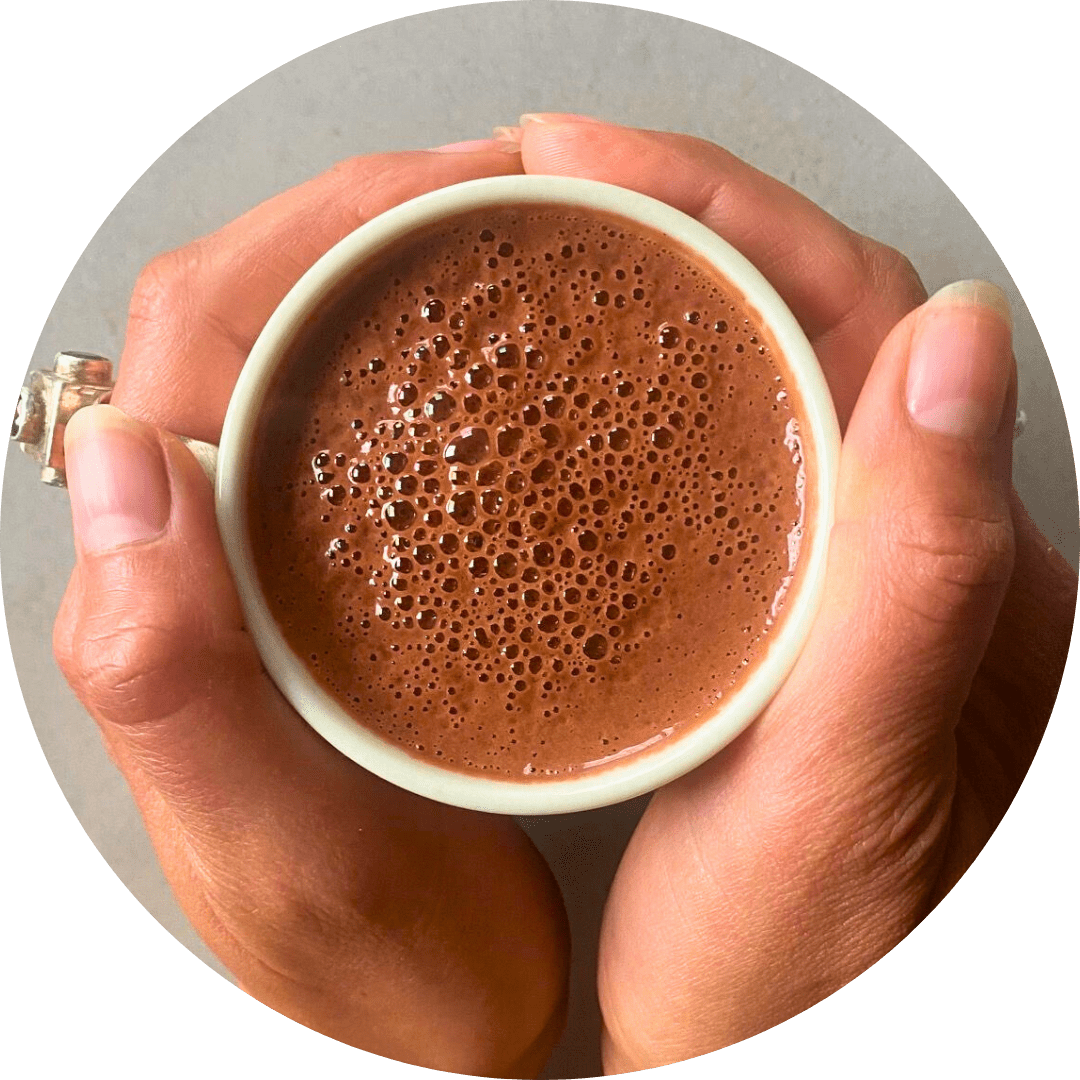
3) Nourishing
Cacao replenishes essential minerals, especially magnesium, which is often lacking in Western diets.Magnesium supports brain function, memory, concentration, and heart health. Cacao is also rich in chromium, copper, calcium, manganese, zinc, sulfur, iron, and phosphorus.
Journey with Us to Tanzania...
-
August - November
Peak Harvest Time
-
34
Metric Tons Purchased Since 2018
-
458
Organic Farmers
-
866
Acres of cacao
-
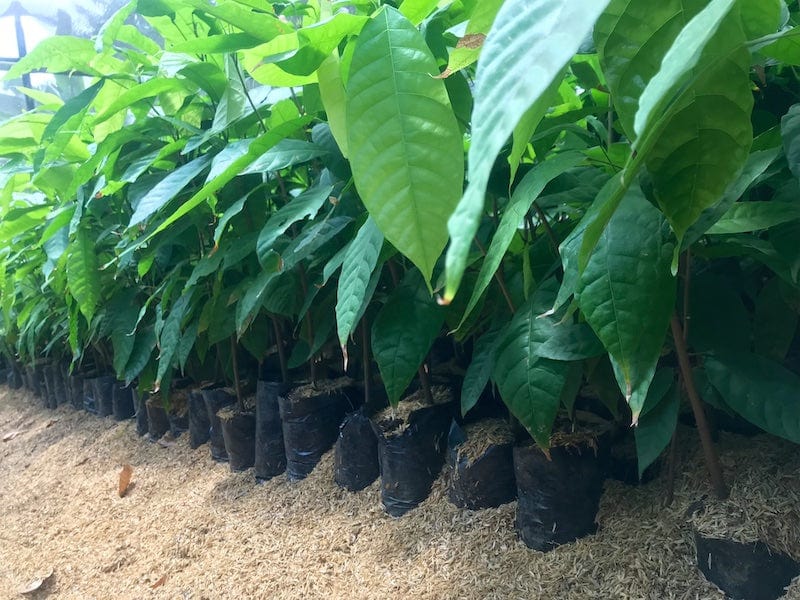
Young theobroma cacao seedlings in the nursery
-
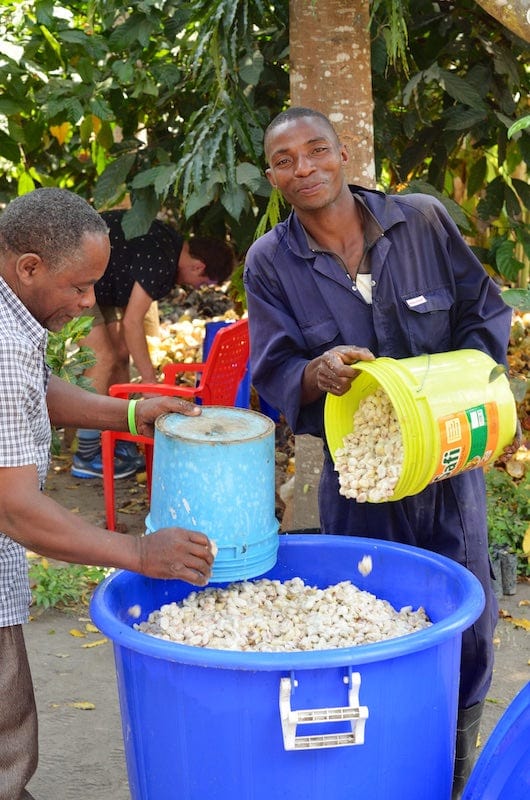
A big bucket of wet cacao ready to begin fermentation
-
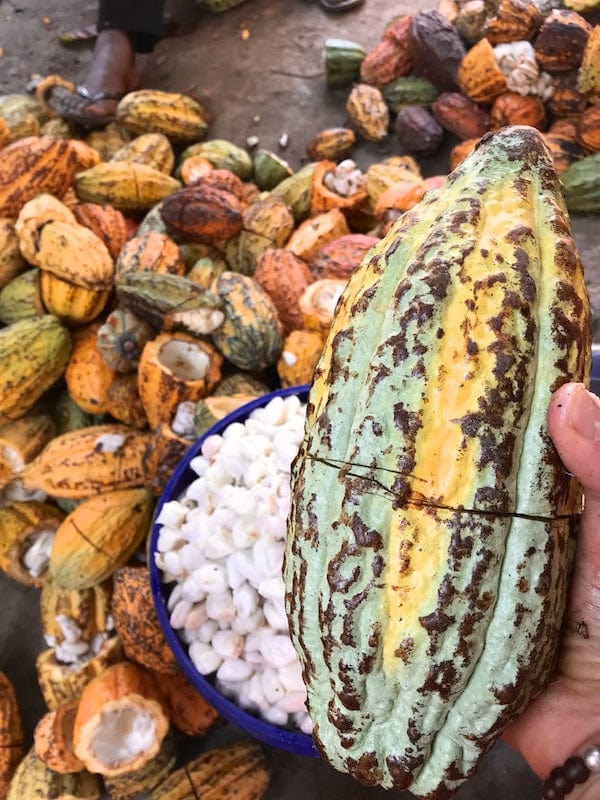
Opening the cacao pods to extract the seeds
-
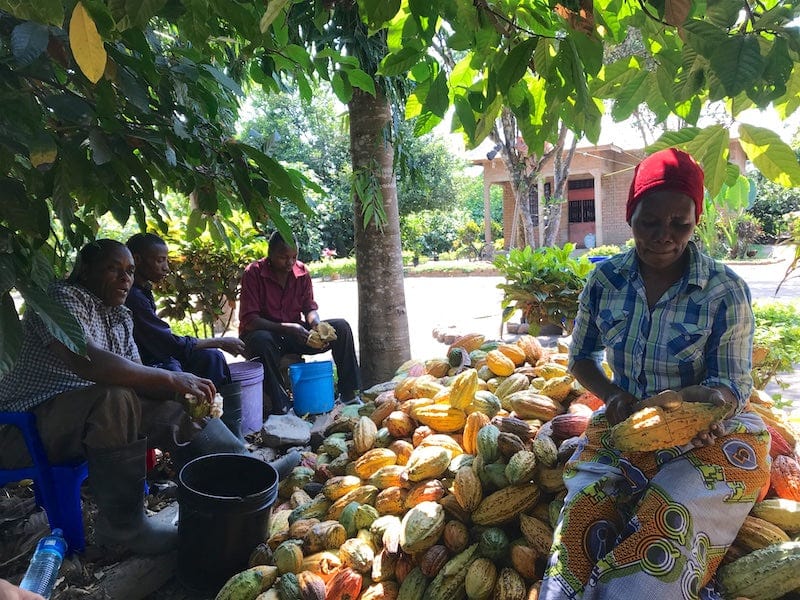
Sarah's farm with a big harvest of ripe cacao pods
Answers to Frequent Health Questions
How Do You Ship?
How Do You Ship?
We ship with insulation and two big ice packs when it's hot out. Additionally 95% of our packages arrive within 1-2 days. That ensures that almost all of our orders arrive safely. All that said, we can't 100% guarantee it arrives without melting, so we would recommend not ordering during a big heat wave and waiting until a cooler week if possible.
What are the Nutrition Facts?
What are the Nutrition Facts?

Is Your Cacao Tested for Heavy Metals?
Is Your Cacao Tested for Heavy Metals?
Yes! We take heavy metals in cacao very seriously and have been testing long before the recent media attention on the topic.
All of our cacao has no detectable levels of lead. Lead is a post harvest contaminant that is introduced onto cacao beans through air and soils pollution. Since we source from remote and pristine regions with exacting standards, we have never had any presence of lead in our cacao tests.
All of our cacao also tests well below the legal limits for cadmium. Cadmium is present in many soils and impacts much of the food that we eat. Even if you were to consume cacao daily and it had the legal limit of cadmium in it, experts estimate that is would contribute at most 10% of your daily cadmium intake that comes from other grains and vegetables.
We've been talking with people daily to assure them that they will not die from heavy metals poisoning because of their love of chocolate. We strongly believe big chocolate needs to be held accountable for poor quality of their products. We're also disappointed that a lot of the recent media didn't contextualize the many cadmium sources people have in their diets (not just cacao), and that there are very large factors of safety that are used to determine the legal limits.
Here's a good third party perspective on the topic: https://arstechnica.com/health/2023/11/despite-spooky-consumer-reports-testing-metals-in-chocolates-arent-scary/
Why are there Rainbow Bubbles in my Cacao?
Why are there Rainbow Bubbles in my Cacao?
All of the following answers are true - pick what works best for you!
1) The cacao senses your awesomeness. Only the blessed few can actually see them, so, you must be awesome.
2) Thin-film interference. Cacao is rich in oils that can spread out in very thin layers on the water-based beverage. The different wavelengths of light have different kinds of interference between the top and bottom surfaces of the oil so white light turns into iridescent rainbows.
3) It's energetic residue from the rainbow serpent that emerged from the first cacao tree a very long time ago (for real - cacao is considered an original world tree in the Maya cosmosvision)
How is this different than cacao powder?
How is this different than cacao powder?
We typically tell our customers that cacao powder has little medicinal or health value because of the following differences:
1) Cacao powder is often made with untraceable, low quality commodity cacao that doesn’t support farmers with ethical compensation. By contrast, Ora sources direct trade traceable to the farmer and with organic certification.
2) This low quality input necessitates processing at very high temperatures, which degrades many of the beneficial compounds in cacao. The process of dutch processing or alkalization to make the flavor milder further reduces the levels of these compounds. By contrast, Ora's premium inputs enable us to use uniquely low temperature processing that keep the value of the cacao bean intact.
3) The cacao bean on it's own is about 50% cacao butter, a healthy natural fat. Pressing for powder strips away most of this fat (reducing it to 10%). However, you want cacao as a whole food, with the cacao butter in it's natural ratio. That's because the fat is an essential carrier for the health benefits of cacao, so without it, many of the health benefits of cacao are unrealized. By contrast, Ora ceremonial cacao has nothing added or removed, so it is a whole food as nature designed it.
Is Cacao A Stiumulant?
Is Cacao A Stiumulant?
We’ve tested our cacao and it has 36 mg of caffeine per 1 oz serving, or about 1/3 of what a regular cup of coffee has. It sounds like a lot, but 1mg of caffeine in cacao is not equivalent to 1mg of caffeine in coffee, because cacao has many other compounds that balance and down-regulate the caffeine.
The primarily stimulant molecule in cacao is actually theobromine. Ora Cacao has 212mg theobromine per 1oz serving. Theobromine is a mild cardiac stimulant, and differs molecularly from caffeine which is a nervous system stimulant. Theobromine gives a long lasting, gentle, embodied energy without any sort of jitters or crash, even for sensitive people. Overall, theobromine is only about one quarter as stimulating as caffeine, and it has a much longer half life in the liver, meaning that it's effect on the body is softer and longer for sustained energy.
Theobromine is also a vasodilator (it relaxes blood vessels), so it has a neutral effect on blood pressure. The improved circulation from cacao is excellent for cardiac health, and improves absorption of the nutrients in cacao and superfoods that it is paired with.
Ceremonial cacao is a great coffee replacement because it offers a grounded energy boost without the jitters and crash. You can fully or partially substitute your cup of coffee with a cup of cacao. If you are new to cacao we recommend drinking it before 2pm so that the stimulant effect has time to clear before you need to sleep.
How Does Cacao Affect Mood?
How Does Cacao Affect Mood?
In the long term, regularly working with ceremonial cacao can have therapeutic health benefits that include creating new neural pathways that change our daily experience to include more joy, love, and connection.
That's because cacao is full of beneficial neurotransmitters and neuro-modulators. It also contains reuptake inhibitors that block the pathways that our bodies normally use to break down and recycle these beneficial mood altering molecules, so the good mood lasts for longer.
Some of the top mood altering molecules in cacao include:
Anandamide is commonly referred to as the bliss molecule, and is associated with the runner’s high effect. It is actually the first endocannabinoid to be discovered, and it is well known for moderating pain. Cacao also has N-linoleoylethanolamine, which is the reuptake inhibitor for anandamide.
Phenylethylamine (PEA) gives the perception of time slowing down, and helps with excitement, alertness, attention.
Norepinephrine is commonly referred to as the joy molecule. It is both a neurotransmitter and a hormone.
Serotonin - Helps with wellbeing, and creates resistance to stress. Cacao contains typtophan, an amino acid that the body converts into serotonin, and cacao contains MOA inhibitors that inhibit re-uptake of serotonin.
Dopamine - Gives feelings of motivation and pleasure. Cacao contains tyrosine, an amino acid that the body converts into dopamine, and cacao contains MOA inhibitors that inhibit re-uptake of dopamine.
Due to these molecules and many others, when you drink ceremonial cacao you may feel expansive, blissful, connected to self and/or others, inspired, connected to your intuition & vision, connected to spirit, grounded, you may have emotions arise, and you may experience the movement of stuck energy. Gives the perception of time slowing down.
What Minerals Does Cacao Have?
What Minerals Does Cacao Have?
Consuming cacao can replenish minerals vital to our body. Magnesium is chronically deficient in the majority of western diets, and cacao is the highest naturally occurring source. Magnesium is used in all key brain functions, especially memory and concentration. It is also beneficial for the function of the heart, acting to relax blood vessels and decrease strain. Besides magnesium, cacao is also the highest naturally occurring source of chromium, and also high in copper, calcium, manganese, zinc, sulfur, iron, and phosphorus.
Are there any Contradindications?
Are there any Contradindications?
Cacao is generally contraindicated with SSRIs, SNRIs, and NDRIs. Unfortunately that means many people struggling with depression and other mental illnesses cannot take cacao because of the pharmaceuticals they are medicating with. There is potential that people may be able to partially reduce their SSRI or SNRI or NDRI medication intake and supplement with ceremonial cacao, however medical studies on this need to be done to establish a verifiable protocol. We recommend consulting with your pharmacologist if this is of interest.
Besides this, we highly recommend being well hydrated before, during, and after drinking cacao.
Ceremonial Cacao vs Other Cacao Products
| Ceremonial Cacao | Cacao Powder | Baking Chocolate | Raw Cacao Paste | Chocolate Bar | Brewed Cacao | |
|---|---|---|---|---|---|---|
| Premium quality beans |
|
|
|
|
|
|
| No sugar |
|
|
|
|
|
|
| Healthy natural fats |
|
|
|
|
|
|
| Melts into liquid chocolate |
|
|
|
|
|
|
| Healthy natural fats |
|
|
|
|
|
|
| Minimally processed |
|
|
|
|
|
|
| Regenerative agroforestry |
|
|
|
|
|
|
| Ethical, direct trade* |
|
|
|
|
|
|
*Depends on brand, however, almost all cacao is sourced from the commodity cacao market without any traceability.
You May Also Like
-
Bélize sans limites
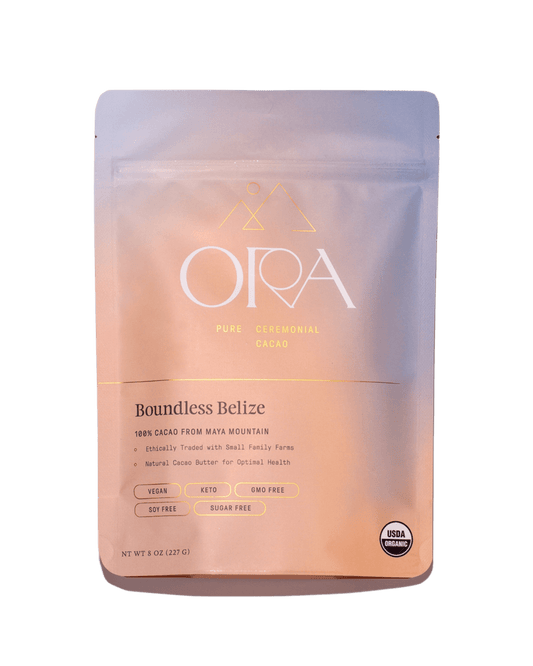
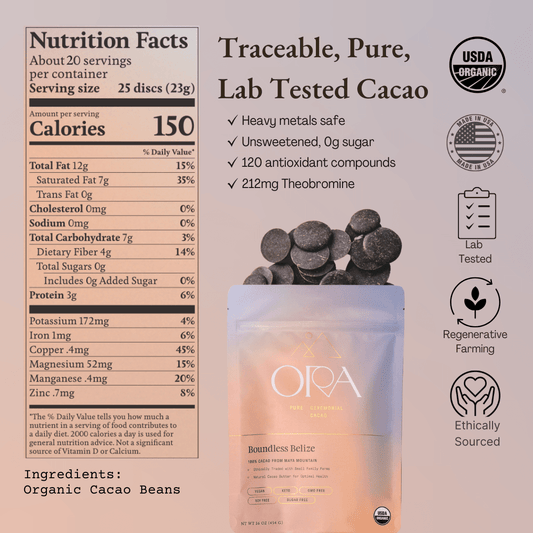 Bélize sans limitesRated 4.9 out of 5 stars367 Reviews
Bélize sans limitesRated 4.9 out of 5 stars367 Reviews -
Uplifting Uganda
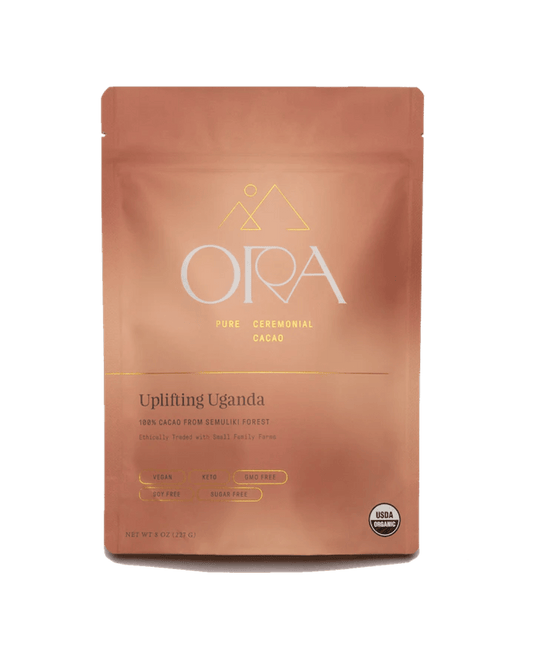
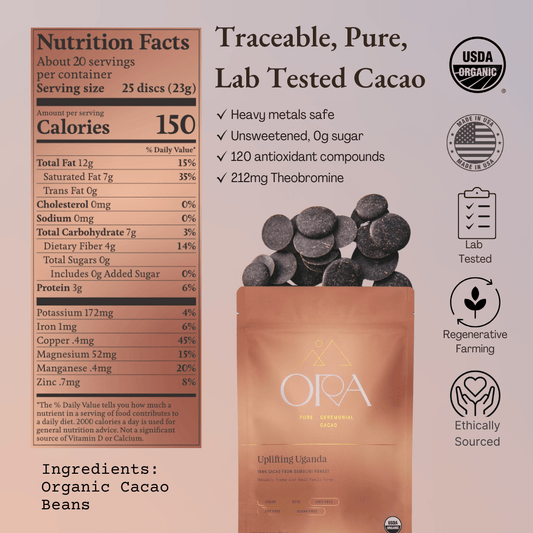 Uplifting UgandaRated 4.9 out of 5 stars367 Reviews
Uplifting UgandaRated 4.9 out of 5 stars367 Reviews -
Guatemala éclatant
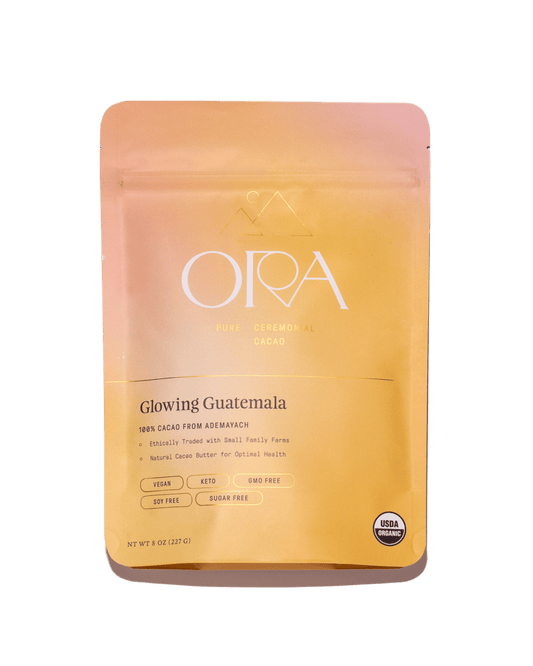
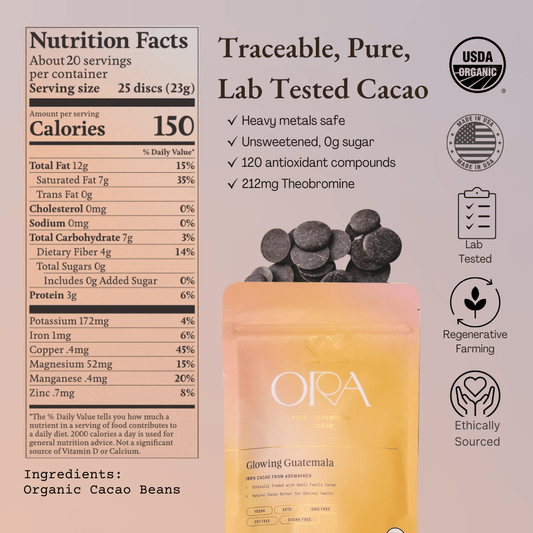 Guatemala éclatantRated 4.9 out of 5 stars367 Reviews
Guatemala éclatantRated 4.9 out of 5 stars367 Reviews
Not sure where to start with cacao?
That's okay, you can try them all! Our best selling pure ceremonial cacao kit allows you to try all four of our 100% single origin cacaos!


